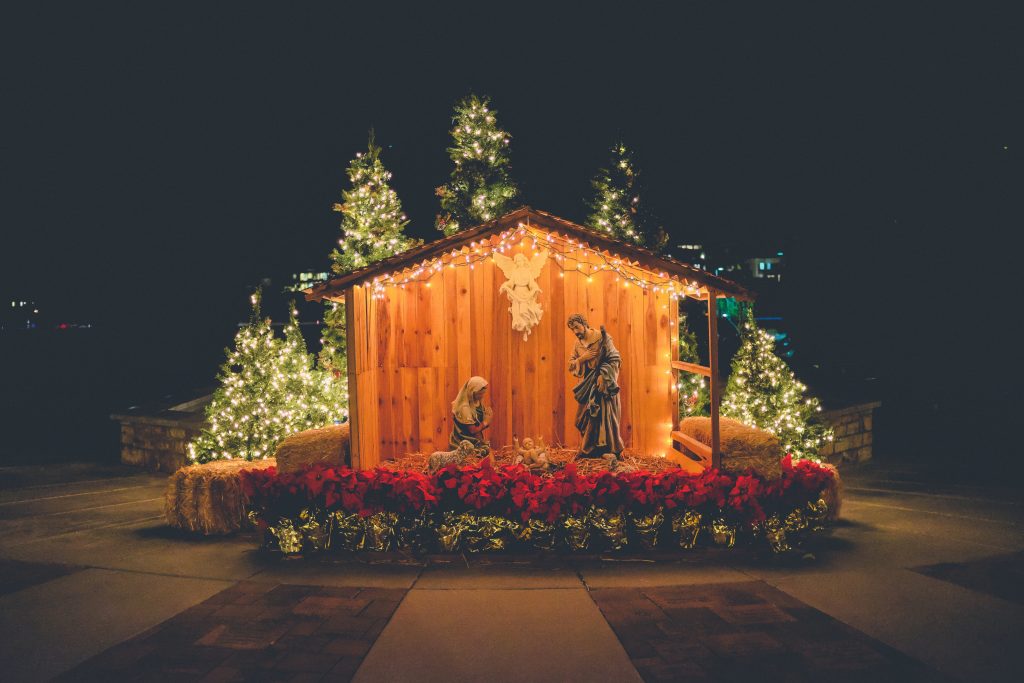
Why doesn’t God do something? Why doesn’t he show himself? Why is he silent?
Over the centuries God’s people have asked that question often. We want help. We want vindication. We want solutions.
But the question “Why doesn’t God do something?!” is deeply misguided.
There are many places in the Bible where we could demonstrate that, but I’m going to suggest the book of Esther.
When my daughters were small, this was their favorite Bible story—I suppose because it involves a strong, smart woman, and plenty of suspense, and rich irony. They would often ask me to tell it, and if I left out a line, they would interrupt and remind me—“No, Daddy, you forgot to say that the Jews don’t bow to anyone but God!”
We all know the story; I don’t need to recount it all here. But perhaps you’ve never noticed that throughout this ancient classic, God’s name is never mentioned.
It’s as though he doesn’t exist.
The closest the writer comes to mentioning God is when Mordecai—who’s apparently named for the Babylonian god Marduk—tells his cousin that perhaps she has come to be queen “for such a time as this” (Est 4.14)—implying some kind of guiding hand in history.
No, God is not mentioned. But throughout the story there’s evidence of his hand at every turn—
- The evil king Xerxes (that’s the Greek form of the name Ahasuerus) deposes his queen because she won’t degrade herself before his drunken friends.
- This evil king decides to replace her by a holding a sexual tryout among the most beautiful women of the land, appointing his favorite as queen and relegating the rest to his harem. This is not exactly a godly activity, though culturally allowed. Esther’s beauty gets her into the trial, and eventually he appoints her queen.
- Her cousin happens to overhear two members of the court plotting to assassinate the king. He reports the plot, saving the king’s life, and a cuneiform tablet recording the deed is added to the voluminous court archives.
- A proud member of the court, one who clearly has designs on the throne, is enraged by Mordecai’s refusal to bow to him and evidences his racism by planning to kill Mordecai and all his people. He builds an execution stake and goes to ask the king’s permission to execute Mordecai.
- At the climax of the story, the king has insomnia. Of all things. He asks a servant to bring something from the archives to read; surely that will put him to sleep.
- The servant, probably rubbing the sleep from his eyes, wanders into the warehouse, yawns, and grabs any old cuneiform tablet from Section 427Q—or whatever—and returns to the king to begin reading.
- We all know which tablet he grabbed, probably without looking. The king learns, apparently for the first time, that an assassination plot has been foiled by a low-level government functionary.
- He wants to reward the fellow, so he asks for ideas. “Is anybody in the court?” And there stands Haman the proud, waiting for morning—he wants to be the first in line—to get approval for Mordecai’s execution. The very Mordecai that the king wants to reward.
- And the story goes on.
Too many coincidences. Too many unifying events in the plot development.
Somebody thought up this plot. Somebody wrote this story. And everybody who reads it, from my little daughters to the most aged saint, knows that. Now what would you think if somebody wandered into this narrative and asked, “Why doesn’t God do something?!”
We’d say he’s clueless. We’d say he needs to sit up and pay attention.
Throughout biblical history—by the most conservative estimates, maybe 4000 years—miracles are quite rare. They occur in spurts, during the lifetimes of Moses and Joshua, Elijah and Elisha, and Christ and the apostles. About 5 or 6% of the time. (If you think the earth is older than that, the percentage is even lower.)
Even in the Bible, at least 94% of the time, God’s not doing miracles. He’s doing ordinary things, directing the affairs of people and nations.
We call that providence.
And he continues that work today, in your life and mine, ordinarily, unspectacularly, beneficially, lovingly, wisely.
We need to sit up and pay attention.




